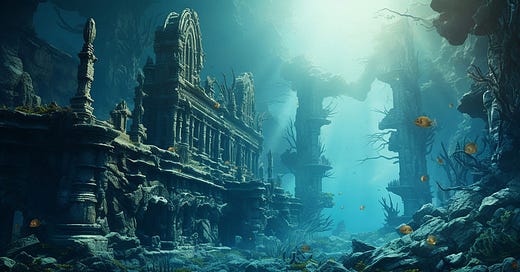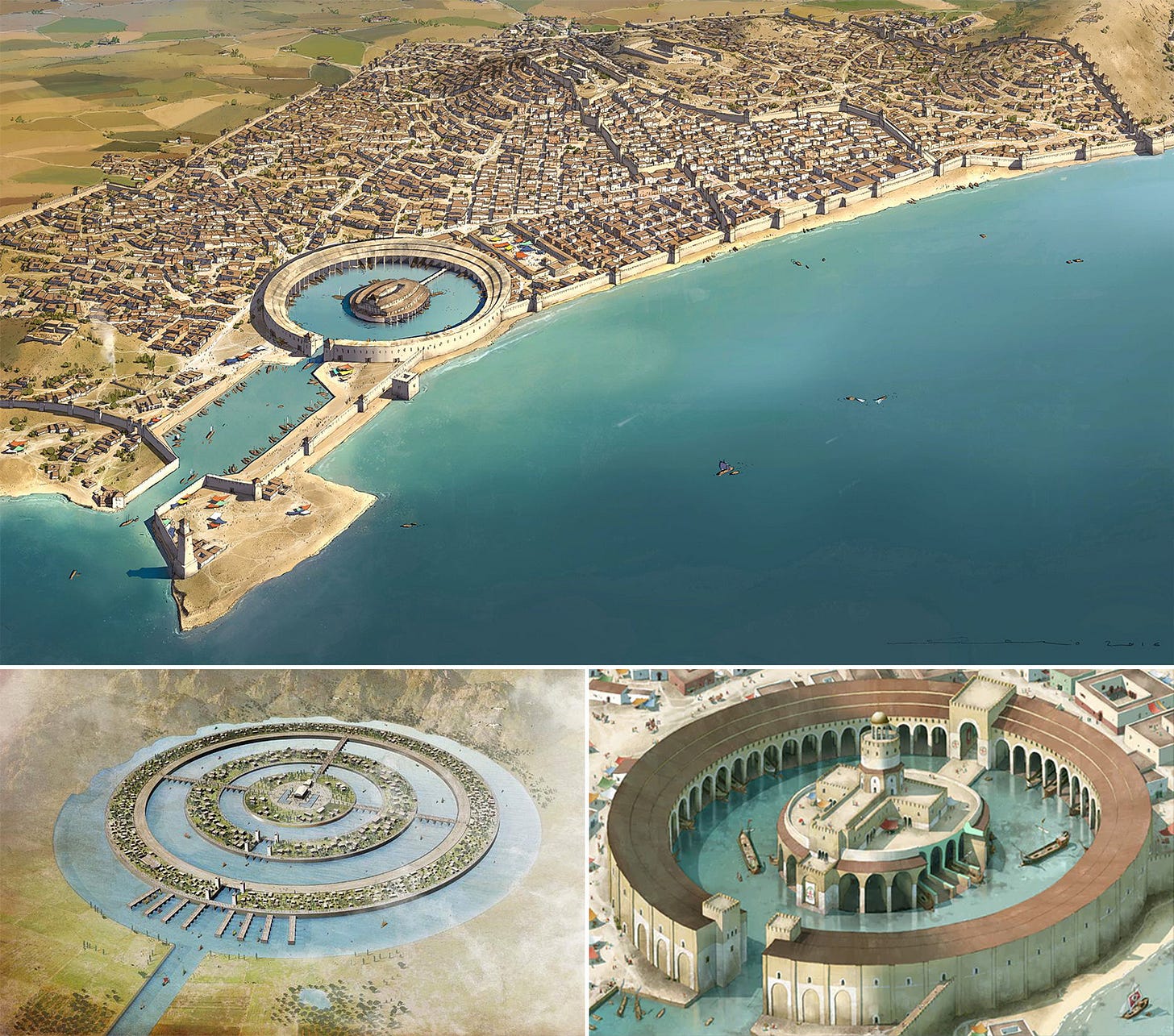“Poseidon took for his allotment the island of Atlantis and settled therein the children whom he had begotten of a mortal woman…”1
Experts in classical antiquity have deduced that Greek mythology was largely influenced by the Canaanite religion of the Phoenicians: “Carried west by Phoenician sailors, Canaanite religious influences can be seen in Greek mythology, particularly in the tripartite division between the Olympians Zeus, Poseidon and Hades, mirroring the division between Baal, Yam and Mot, and in the story of the Labours of Hercules, mirroring the stories of the Tyrian Melqart, who was often equated with Heracles.”2
In ancient Greek religion Poseidon is one of the Twelve Olympians, he presided over the sea, storms, earthquakes, horses, and was the protector of seafarers. According to Plato, Atlantis was Poseidon’s domain, and his firstborn, Atlas, became it’s first ruler.3
Poseidons’ other son, Agenor, is said to have become the king of Phoenicia. Agenor had several children, including sons Cadmus, Cilix and Phoenix and a daughter named Europa – from whom the continent of Europe is named. Cadmus was the greatest hero and slayer of monsters before the days of Heracles, and was credited by the Greek historian Herodotus with introducing the Phoenician alphabet to the Greeks.4
These myths imply a direct link from Atlantis to Phoenicia; they are then imparted to the Greeks, and subsequently adopted by the west.




